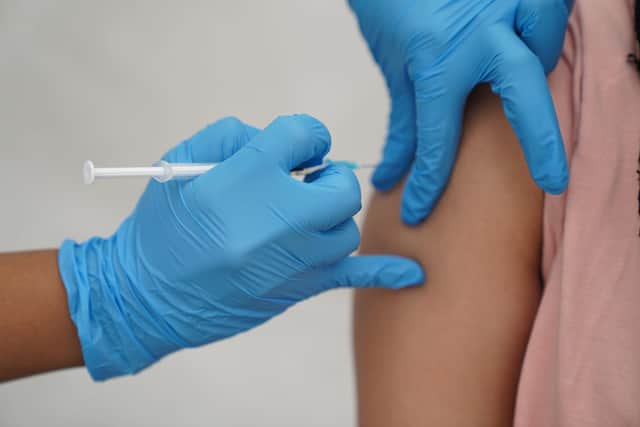Covid Scotland: ‘Significant drop’ in confidence in vaccines since start of pandemic, survey shows
Researchers from the University of Portsmouth carried out two anonymous surveys in the winters of 2019 and 2022 to gauge people’s attitudes to vaccinations and to look at what factors cause hesitancy and refusal.
After questioning more than 1,000 adults, they found the post-pandemic group was considerably less confident in vaccines than in the pre-pandemic group.
Advertisement
Hide AdAdvertisement
Hide AdThe paper, published in the medical journal Vaccine, showed a fall in confidence of nearly one in four participants since 2020, regardless of their age, gender, religious belief, education or ethnicity.


Dr Alessandro Siani, associate head of the School of Biological Sciences at the University of Portsmouth, said: “While vaccine hesitancy is not a new phenomenon, Covid-19 vaccines have been met with particular hostility despite the overwhelming scientific evidence of their safety and effectiveness.
“This isn’t just among conspiracy theorists though, but also those who don’t consider themselves ‘anti-vaxxers’ and had supported other vaccination campaigns in the past.”
Participants were asked how much they agreed with statements including “vaccines are safe”, “I think vaccines should be a compulsory practice”, “I believe if I get vaccinated it would benefit the wellbeing of others” and “vaccines are a necessity for our health and wellbeing”.
In both surveys participants who held religious beliefs were significantly more vaccine-hesitant than atheist and agnostic ones, and individuals from black and Asian backgrounds were more hesitant than those of white ethnicities.
However, the researchers say there was no association between gender and vaccine confidence.
A university spokesman said: “While these overall trends remained largely similar between the two surveys, some noteworthy changes were observed in the post-pandemic survey.
“For example, the analysis revealed that while in 2019 middle-aged participants were considerably more apprehensive about getting vaccinated than younger groups, this was not the case in the 2022 survey.”
Dr Siani added: “This could be because Covid-19 infections notoriously lead to more severe outcomes in older patients.”
Comments
Want to join the conversation? Please or to comment on this article.